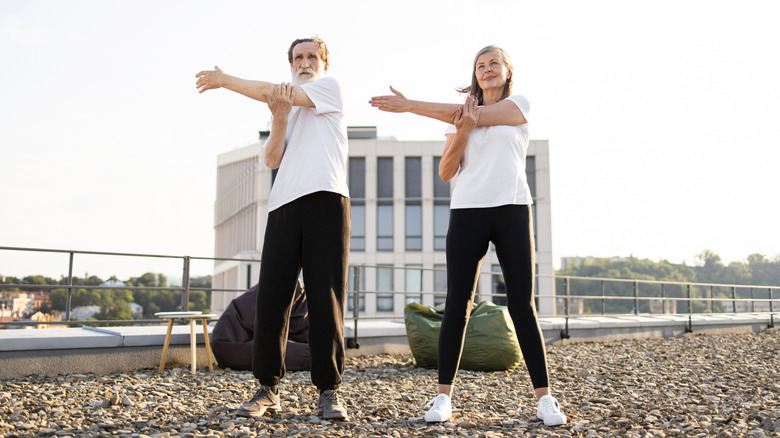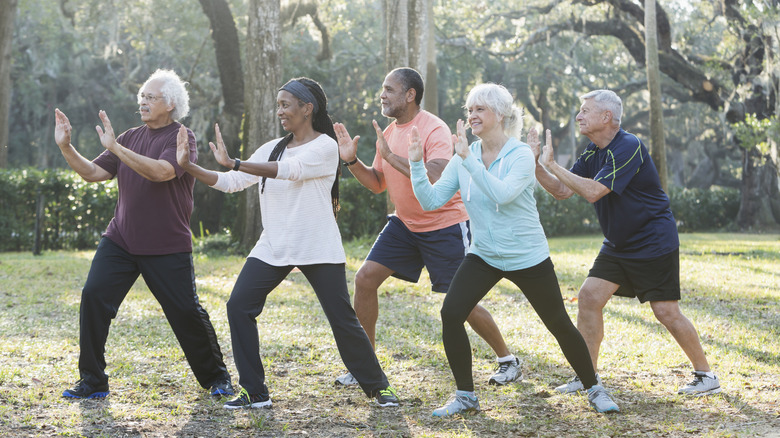The Best Exercise For People Over 60 That Isn't Walking Or Running
When your doctor or health professional recommends adding more exercise to your life, walking is often at the top of the list. It's approachable, easy to fit into most schedules, and requires very little gear. All you really need is a pair of comfortable shoes and a safe route where you can move at your own pace.
Walking is a gentle way to build endurance, but you can choose running to up the intensity. Running has the added advantage of being considered a vigorous activity. Because of that, just 75 minutes of running per week can help you meet most of the standard exercise recommendations for adults.
Cardiovascular health is important, but it's not the only component of fitness as you age. The U.S. Centers for Disease Control and Prevention also encourages older adults to work on strength and balance. While lifting weights at the gym is one option, practices like tai chi can also strengthen muscles, improve balance, and even help prevent falls.
(Should you choose tai chi or yoga?)
The benefits of tai chi don't stop with the physical body. Because it emphasizes slow, mindful movement, tai chi enhances the connection between your mind and body. Tai chi also lowers stress levels and supports long-term cognitive health, making it a well-rounded practice for healthy aging.
Tai chi improves the brain health of older adults
You may have seen people practicing the slow, flowing movements of tai chi or a similar mind-body exercise called qigong. These movements are designed to circulate energy, known as chi or qi, throughout the body. But they do more than that. Gently moving through each pose works your joints, shifts your weight to improve balance, and helps you become more aware of your body's rhythm. That awareness can also help quiet a busy mind.
A 2023 review in BMC Geriatrics looked at 17 studies on the effects of tai chi and qigong in older adults. Both practices improved balance, walking speed, strength, and the ability to perform everyday tasks. As people's physical health improved, so did their cognitive function, including attention, memory, and mental processing.
Tai chi may be even more effective than walking for certain cognitive dimensions. A 2022 study in Frontiers in Human Neuroscience followed two groups of healthy adults over 60. One group practiced tai chi for 60 minutes, three times a week. The other group took brisk walks that raised their heart rate to about 75% of their maximum. After 10 weeks, both groups improved their scores on the Montreal Cognitive Assessment (MoCA), a test that measures memory, attention, and visuospatial skills. However, the tai chi group showed greater improvement in memory. Researchers believe this may be because tai chi requires participants to learn and remember complex movement sequences, which exercises the brain as well as the body.

